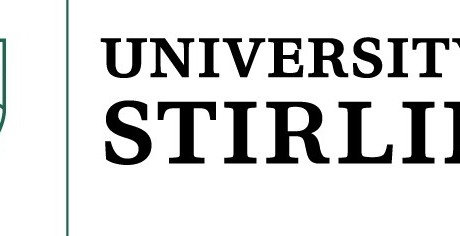NEW research from the University of Stirling indicates that levels of antibiotic pollution in the environment may lead to an increase in the prevalence of antibiotic resistance, making it a Public Health concern.
The research, to be published in the American journal Environmental Health Perspectives, was led by PhD student, Alfredo Tello, from the University’s Institute of Aquaculture. The study concludes that guidelines established for assessing environmental risks of veterinary antibiotics could be too high. These guidelines are set by VICH, the international programme founded to evaluate the safety of veterinary medicines.
Commenting on the research, Alfredo Tello said: “This study looks at the link between antibiotic pollution and antibiotic resistance from a new perspective. It reinforces previous studies which highlight that antibiotic contaminants in the environment may be leading to the development of antibiotic resistance.
“Antibiotics are being overused and we’re seeing the emergence of resistance to infections that we used to be able to treat. Their overuse has caused a constant ‘selective pressure’ – whereby antibiotic-resistant bacteria have increased within bacterial populations.”
The study was the first of its kind known to analyse the effect of concentrations of antibiotics actually measured in the environment on the prevalence of resistance in clinically-relevant bacteria, including the well-known E. coli.
Says a spokesperson: “Antibiotics are used extensively in human and veterinary medicine, as well as in aquaculture, to prevent or treat microbial infections. They can enter the environment via waste water treatment plant effluents, hospital and processing plant effluents, agricultural waste, and leakage from waste-storage and landfills. In addition, antibiotic resistance genes can be co-released into the environment with antibiotic compounds.
“Stirling’s study suggests that concentrations of antibiotic contaminants that occur in the environment are high enough to increase the prevalence of antibiotic resistance in clinically-relevant bacteria.
“The researchers also compared the levels of antibiotic sensitivity they identified to existing action limits – the guidelines drawn up by VICH to estimate the ecological risks of veterinary medicines on the environment. Their findings suggest that these action limits are set inappropriately high and need to be reconsidered.”
Mr Tello added, “The VICH guidelines should be reviewed to address the emergence of antibiotic resistance due to antibiotic pollution in the environment. An effort should also be made to reduce antibiotic pollution, either by limiting the use of antibiotics or improving the treatment of liquid and solid wastes.”
Ends
For further information, contact Karen McIntosh, public relations officer, on 01786 467058 or on email at k.l.mcintosh@stir.ac.uk
Notes for editors
Before a veterinary medicine can be manufactured, sold or used, the responsible authority in the country where it will be used must legally authorise its use. That marketing authorisation, also known as “registration” or “licence”, signifies to the veterinarian, the animal owner and the general public that the responsible authority has not only approved the product to be marketed, but also the details of the conditions under which the product will be used.
VICH (International Cooperation on Harmonisation of Technical Requirements for Registration of Veterinary Medicinal Products) is a trilateral (EU-Japan-USA) programme aimed at harmonising technical requirements for veterinary product registration. VICH was officially launched in April 1996. Its guidelines establish and implement consistent and harmonised regulatory requirements for veterinary medicinal products in the VICH Regions. These guidelines meet the quality, safety and efficacy standards required to obtain a marketing authorisation of a veterinary medicinal product. They also minimise the use of test animals and reduce the costs of product development.
Once established, an approved VICH guideline becomes the official recommended guideline in the VICH member countries, replacing previously existing national guidelines.
The research paper will be published in Environmental Health Perspectives and can be accessed at http://dx.doi.org/10.1289/ehp.1104650 after 00:01 on Wednesday 9 May.
More on the University of Stirling’s Institute of Aquaculture here.
MEDIA RELEASE posted by the University of Stirling. You too can post media releases on www.allmediascotland. For more information, email here. And do feel free to follow www.twitter.com/allEducationPR.
Contact: Karen McIntosh
Phone: 01786 467058
Email: mediarelations@stir.ac.uk
Website: http://www.stir.ac.uk






